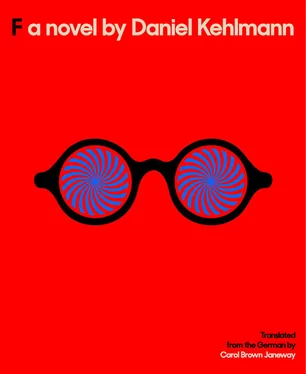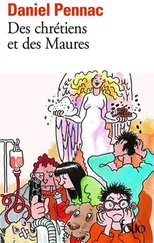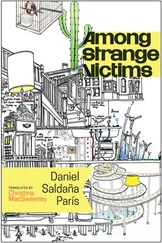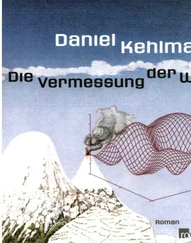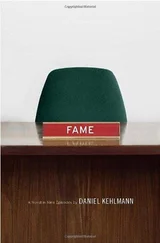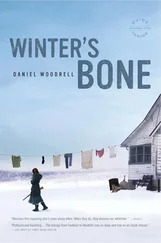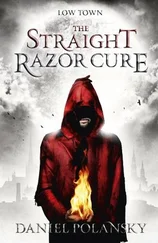I have an idea for an Eulenboeck painting. A portrait of Zollner, from really close up, the way he’s sitting next to me now, in the greenish artificial light of the carriage, in front of a background made up of the gaggle of Japanese, and the title The Arbiter of Art . But of course it won’t do, you’ve been dead too long, poor Heinrich, and nobody would believe it was genuine.
“All the young people! Fresh out of college, year by year, more and more of them. They work as interns, fetch coffee, ask if I want sugar, look over my shoulder, and brood about what it is I can do that they can’t. They all understand something about art, Friedland! They’re none of them stupid. They all want my job. And where do I go then? To Art Review Online ? I’d rather hang myself.”
“Yes, well,” I say, embarrassed. He will remember this conversation, and he won’t forgive me.
“But they don’t have the feel for it. They don’t know when it’s time to praise Malinovski and when the time for that is already over. They allow themselves to be impressed, they like something or they don’t like something; that’s their mistake. They don’t know what’s required of them.”
“Required?”
“No one can fool me. Nothing impresses me. To know whether someone’s on the way up or on the way down takes experience, you have to have the instinct!” He rubs his face. “But the pressure, you have no idea! Molkner, for example. First he praised Spengrich, whom it’s impossible to like anymore, then he made a point of recommending Hähnel, two days before Lens on Culture unearthed the fact that Hähnel is anti-democratic, and then he named photorealism as the art form of the future. A pathetic attempt to position himself against Lümping and Karzel as the force of conservatism, but the idiot picked the exact moment when Karzel was using us in the Evening News to mount his attack on the New Realists. You remember, even Eulenboeck got handed his head on a platter. Totally lousy timing! And now? What do you think?”
“Yes?” I dimly remember Molkner: a little man, always sweating profusely, very nervous, balding, pointed beard.
“Now he’s nothing but a sort of freelancer,” Zollner whispers, as if at all costs to conceal this from the Japanese. “And Lanzberg, his former assistant and total piece of shit, is firmly ensconced as editor, overseeing the articles Molkner sends back from exhibition previews out in the sticks. Merciless! Believe me, this business is merciless.” He nods, listens to his own words, jumps up abruptly, and gives me another slap on the shoulder. “Sorry, I’m in a lousy mood. My mother died.”
“How terrible!”
He pushes his way through the Japanese to the door. “You’ll believe anything!”
“So she didn’t die?”
“Not today, at least.” He elbows aside a man with a face mask and leaps out. The doors close, the train moves on, for a moment I can still see him waving, then we’re traveling through the darkness again.
One of the Japanese sits down next to me and presses little buttons on his camera. This subway line is not a scenic route, the only thing up ahead is the industrial zone on the edge of town. The tour group is on the wrong train. Someone ought to tell them. I close my eyes and say nothing.

So I was never going to rank as a painter. This much I now knew. I worked the same way I had before, but there was no longer any point. I painted houses, I painted meadows, I painted mountains, I painted portraits that didn’t look bad, they showed skill, but so what? I did abstract paintings that were harmoniously composed, with careful juxtapositions of color, but so what?
What does it mean to be average — suddenly the question became a constant one. How do you live with that, why do you keep on going? What kind of people bet everything on a single card, dedicate their lives to the creative act, undertake the risk of the one big bet, and then fail year after year to produce anything of significance?
Of course, it is part of the nature of a bet that you can lose it. But when it actually happens to you, do you lie to yourself, or can you honestly come to terms with it? How do you proudly put together your little exhibitions, collect your scattered little reviews, and take it as a given that there’s an entire realm of achievement way above you in which you will never take part? How do you deal with that?
“Write about being average.” It was Martin’s idea back then, in the monastery garden at Eisenbrunn. And he was right: I could always become an art historian with an unusual field of research. So I wrote a letter to Heinrich Eulenboeck. I didn’t lie, but I also didn’t mention the title of my dissertation: Mediocrity as an Aesthetic Phenomenon . All I did was describe how I had come upon his paintings by chance in an old catalog: Flemish farmhouses, soft hills, welcoming riverbanks, friendly bales of hay, really well painted, with power and a certain soul. That, I’d thought, was what would have become of me. The stubborn expertise, the self-contained perfection. That would have been me.
He sent a delighted reply, and off I went. I was exhausted, because I had just ended a brief affair with a French choreographer, full of passion, fights, screaming and yelling, alcohol, a breakup, a reconciliation, another breakup, and a trip could not have come at a better time. A long stretch by train, then a long stretch with another train, then a crossing on the ferry, then a long stretch on a bus, until finally I was standing facing him in his bright studio. The sea shimmered in the windows with a cool, northerly light.
He was in his early sixties back then, more imposing than I had expected, an elegant gentleman with a white mustache, impeccable clothes, and an ivory cane, witty, relaxed, and cultivated. I had planned to leave again the next day, but I stayed. And I stayed the next day and the day after that, and then the whole week and the whole year, and the year after that. I stayed until he died.
The lights in the subway shrink, become a single patch, then disappear. Beauty has no need of art, it has no need of us, either, it has no need of witnesses, quite the opposite. Gaping observers detract from it, it blazes most brightly where no one can see it: broad landscapes devoid of houses, the changing shapes of clouds in the early evening, the washed-out grayish red of old brick walls, bare trees in winter mists, cathedrals, the reflection of the sun in a puddle of oil, the mirrored skyscrapers of Manhattan, the view out an airplane window right after it’s climbed through the layer of clouds, old people’s hands, the sea at any time of day, and empty subway stations like this one — the yellow light, the haphazard pattern of cigarette butts on the ground, the peeling advertisements, still fluttering in the slipstream of the train, although the train itself has just disappeared.
The escalator carries me upward, the street organizes itself around me, the summer sky forms an arch high over my head. I look in all directions — not just out of caution, because this is a dangerous neighborhood, but because we’re put here on earth to see. The garbage cans are casting their short midday shadows, a child whips past on a skateboard, arms outstretched, simultaneously swaying and in perpetual risk of falling. The same beam of sunlight flashes high up in a window and down here in the rearview mirror of a parked car. The dark rectangle of a drain cover, all geometrical, and way above it, as if set against it deliberately, the vague trail of a vanishing cloud. I open a door quickly, go inside, and shut it behind me. An ancient elevator carries me jerkily from floor to floor up to the top. Only on the third floor is there a seldom-used warehouse; the rest of the building is empty. The elevator grinds noisily to a halt, I get out and unlock a steel door. I’m immediately surrounded by the smell of acrylic, wood, and lime, and the rich aroma of pigments. How good it is to be able to work. Sometimes I get the suspicion I’m actually a happy man.
Читать дальше
